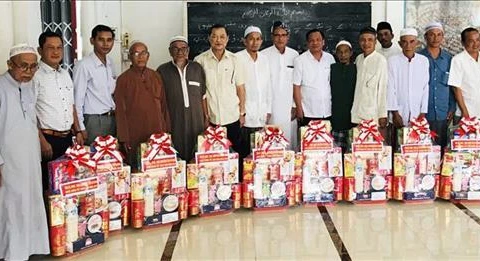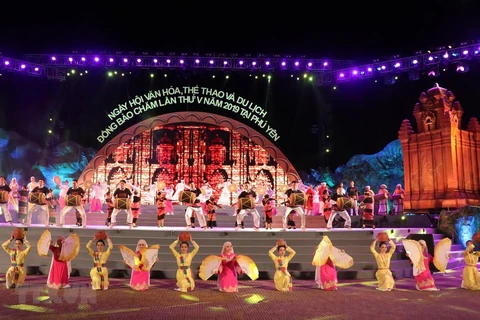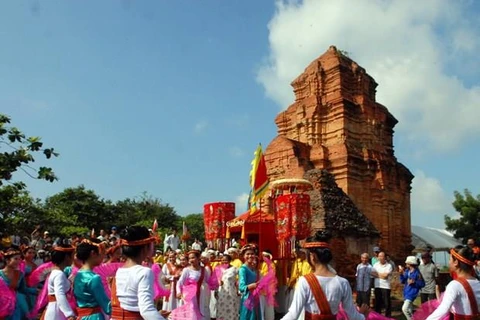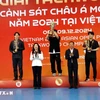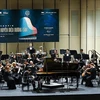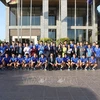 One of five ancient Cham books donated to the My Son Sanctuary management board in Quang Nam province. These books are linked to old ritual or worship ceremonies of the Cham people in central Vietnam over past decades. (Photo courtesy of My Son Sanctuary)
One of five ancient Cham books donated to the My Son Sanctuary management board in Quang Nam province. These books are linked to old ritual or worship ceremonies of the Cham people in central Vietnam over past decades. (Photo courtesy of My Son Sanctuary) Hanoi (VNS/VNA) - The My Son Sanctuary management board has received five collections of ancient Cham script books – related to old rituals or worship ceremonies of the Cham people in central Vietnam – from a local collector, contributing to precious data for the UNESCO-recognised world heritage site.
Deputy head of the management board, Nguyen Cong Khiet, said the books were donated by local antiquities collector Lam Zu Xenh from Quang Ngai province.
He said they are the first old Cham script books that have been sent to the My Son Sanctuary.
Lam Zu Xenh, 61, a Vietnamese-Chinese herbalist, whose father is an emigrant Chinese and mother is Vietnamese, told the English language daily Viet Nam News that the five-book collection, made from Do (poonah paper) and ink by the Cham people, had been preserved by a Cham teacher in central Vietnam before he collected them from a trans-Vietnam trip six years ago.
Xenh said only several Cham people could read and understand the old scripts, and he hoped cultural researchers would translate the content of the books into Vietnamese for public display.
The Quang Ngai-born collector said he had collected about 20 to 30 books written in Cham, and many books were donated to museums nationwide including the Cham sculpture museum of Da Nang – a popular exhibition centre of precious objects and statues from excavations at the Cham towers in central Vietnam from past centuries.
He said each book in the collection has 20 pages, which are believed to have been used by Cham people for ceremonies.
The Cham Sculpture museum of Da Nang and the My Son Sanctuary preserve sandstone stele that carved with written scripts.
Dinh Ba Hoa, a cultural researcher, said the central region of Vietnam witnessed cultural exchanges among Cham people (who ruled the central region between the 3rd and 13th century) and Dai Viet craftsmen (Great Viet, now Vietnam).
The My Son Sanctuary – a UNESCO-recognised world heritage site in Quang Nam province’s Duy Xuyen district – had 70 temples and towers built in the 4th century, but many towers had collapsed or were ruined due to bombardments from wars and weather./.
